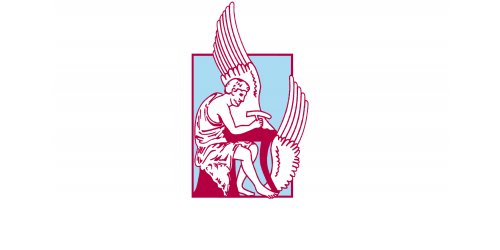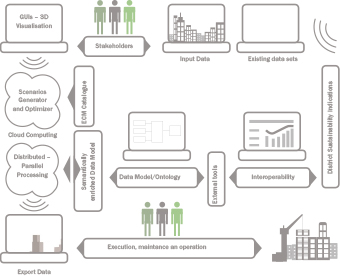Technical University of Crete

Organisation description:
The Technical University of Crete (TUC) was founded in 1978 and educates students on both undergraduate and graduate levels. It is a research-intensive university undertaking basic and applied research activities in most engineering disciplines. The team involved in OptEEmAL comprises members of the Electric Circuits and Renewable Energy Sources Laboratory of the School of Electronic & Computer Engineering and the School of Production Engineering and Management. The group has rich experience in the modeling and simulation of thermal systems and in the development and real-life implementation of large-scale systems. The TUC team participating in the OptEEmAL project comprises 20 employees and students and has extensive experience in the development of energy-related building modeling and control methodologies as well as in the practical application in real-life large-scale systems. The group has developed a middleware platform for the delivery of building analytics and intelligent fault-detection and control algorithms. These research activities have resulted in practical demonstrations on intelligent energy management systems and middleware implementations in many buildings around Europe.
On the simulation side, the groups’ research activities involve the development and analysis of new methods for model reduction and the numerical simulation of energy systems. Besides, the group has contributed to the development of transformation layers that use information from popular data models (e.g. the Industry Foundation Classes) to automatically generate energy performance simulation models. The research group has significant experimental resources (including a Particle Image Velocimetry system, and many building diagnostics tools). Computational activities are supported by a dedicated computer cluster. The TUC research group has been involved in more than 15 research projects.
http://en.tuc.gr
Contribution to OptEEmAL:
The TUC team has worked in the context of previous projects (e.g. in the FP7 Building as a Service (BaaS) project) on the development of algorithms and tools to bridge the gap between Building Information Models and Building Energy Performance Simulation software. The Common Boundary Intersection Projection (CBIP) algorithm which can be used to enrich the IFC model with 2nd-level boundary information is currently under development. Additional functionalities of CBIP include model-checking for geometric errors. Moreover, algorithms to automatically define zoning in simulation models have been developed. These tools will form the basis for developments within the OptEEmAL project. Within OptEEmAL, TUC will work on the development of tools and interfaces with simulation software for the calculation of District- and Building-level performance indicators. In addition, TUC will contribute to the design and development of the overall OptEEmAL platform.
Contact persons:

Dr. Dimitrios Rovas
E-mail: rovas@dpem.tuc.gr
Phone: +30 28210 37365
Role in the project: Main Technical Contact

Prof. Giorgos Stavrakakis
E-mail: gstavr@elci.tuc.gr
Phone: +30 28210 37205
Role in the project: Technical Contact





